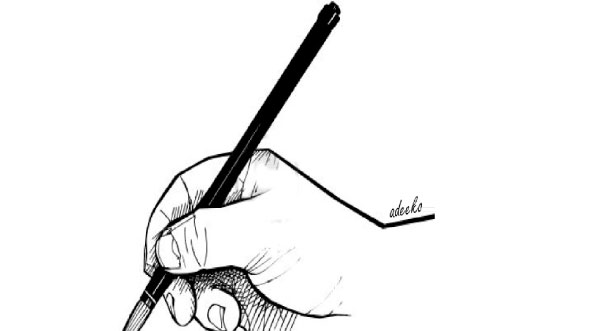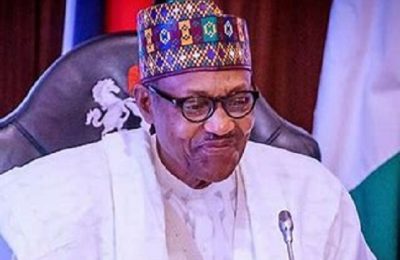
KABIRU, my customer, sells pepper in one of the popular food markets in Ibadan. The quantity of red pepper (Ata Rodo) and tomatoes that I bought at N6,000 naira about a month ago was bought at N18,000 just before writing this piece. Kabiru lamented that as things become more expensive, his gains continue to drop. He made more gains when things were cheaper because people visited the market to buy things regularly. But sales have since dropped because fewer people come to the market. Corn is usually the saviour for the working class during its season but not in this 2024. It was easier to see a good corn (agbado) of N100 to buy in 2023. This year, the manageable corn starts from N200 in Ibadan. When you get to Lagos, it is costlier! Gaari is no longer what you can gift people without thinking twice. It is now between N1300 – N2, 200 depending on the grade of Garri, whether you want Garri Oyo or Gaari Ijebu/Egba. Many would not be able to get protein from beans again because the price of Oloyin (sweet bean) per kongo is now moving from N3,000 to N4,000. Before the Nigeria Labour Congress (NLC), Trade Union Congress (TUC) and their affiliates “relaxed” the strike over the struggle for a national minimum living wage, a song was used during the street protest by the striking workers. The uniqueness of the song explained protest as a justified anger and a mechanism for letting the leadership know that their minds are troubled.
Through the song, the striking workers justified their strike as necessary, not only to draw attention to the problems facing workers in Nigeria but also to get immediate solution. Miffed at the way their lives are being (mis)managed, they sang “ó ye kábínú, ó yè kábínú, gààrí wón, ráìsì (rice) wón, ebi n pa mèkúnnù o, ó ye kábínú.” What they conveyed with this song is that surviving has become very hard under the government of President Bola Ahmed Tinubu. They noted that they were not happy because basic foods had gone out of the reach of the common man. Gààrí is expensive, rice is expensive, the masses are hungry. Therefore, a hungry man is an angry man. Inflation rate as at April 2024 stood at 33.69 percent according to the National Bureau of Statistics CPI and Inflation report of April 2024. The cost of transportation is killing whether you move in your own vehicle or use commercial. Workers are finding it hard to feed their families. Marital conflicts are rising, depression is rising, and Mr President keeps saying e lo fokanbale. It is important for the President to know that there is no ifokanbale (rest/peace of mind) yet for the masses despite telling them e lo fokanbale (calm down). Since President Bola Ahmed Tinubu assumed the mantle of leadership, he has been enjoying his emilokan (his turn to rule) reign. He has also been empowering those within his inner political caucuses and his extended political families with appointments. No one is sad that it is the turn of Omo Olodo-Ide’s to enjoy the perks of office as the president. The question that Nigerians are asking the president is, when will it be their turn to enjoy basic amenities of life and good governance?

The country is hard for the majority but the minority in the corridors of power are getting empowered and better. Only those who interact with the streets will understand what is happening. Small business owners like pepper sellers are shutting down. Those in power formulate and implement policies that empower foreign investors but hurt and kill domestic industries because they cannot compete favourably. Lecturers have not fared better. To even to go to the office five days a week with the present salaries is unsustainable. The Academic Staff Union of Universities (ASUU) has been trying to make government sign a living wage and a better condition of service with the overworked and overburdened public university lecturers. Since 2009, government has been dribbling the Union and playing with the livelihoods of the intellectual community. However, they expect our universities to solve societal problems without committing commensurate funds that can bring out impactful researches. Workers in the health sector are also lamenting. We are losing more of our best to the United Kingdom, Canada, United States of America and even South Africa. There is no money to pay workers a living wage or provide them a decent working condition but there are enough for party men.
It is 25 years into this democratic journey. Yet, Nigerian leaders at the national and sub-national levels have not been able to provide basic amenities for the majority of Nigerians to enjoy. The children of those in power do not find the kind of education that their parents provide for the masses attractive or good enough for them. They spend our collective patrimony to school abroad. Their parents do not believe in the health infrastructures they build to treat them because they know they are poorly equipped. They would rather travel abroad to treat themselves. They cannot confidently ride on the dilapidated road infrastructures. They fly. The masses who don’t have money to fly have to travel by road. In the process, they are picked up by bandits and kidnappers, raped, extorted for ransom and may be released dead or alive. Many households in the North-West and North-East have pulled their children out from going to school because government has not shown them that they can be trusted to protect them.
What are the implications of allowing the aforementioned conditions to continue? There will be increase in corruption in government offices, in the markets and on the streets. People who spend more than they earn to come to office do not depend on the salaries anymore. They have simply devised strategies and are exploiting the system that failed to consider their welfare as important. When the economy is hard as it is, there will be increase in out-of-school children and that implies future danger and insecurity. When people shut down their businesses, there will be increase in unemployment and poverty and the resultant effects will be increase in social problems, deviant behaviours and criminality such as cybercriminality, armed robbery, kidnapping and banditry.
President Bola Tinubu needs to know that fixing the economy is an important step to reposition the country. Farming communities need protection from bandits and terrorists displacing them from their ancestral homes so that they can plant and grow crops to feed the nation. Our refineries must be made to work and refine products for us locally. Government policies must encourage domestic production and protect domestic industries to thrive. Electricity (energy) is central to this. Epileptic power supply kills business. The President must be courageous to weed out those sabotaging his efforts. Workers must get a living wage. It is one year in office and the promises are far from being kept. For Nigerians to hail thee, Mr President, you need to deliver a sound security system, a functional health and education and a rejuvenated economy. Mr President, grant this one request. Help us to build a nation where no man is oppressed as it is now. And so with peace and plenty, Nigeria and Nigerians may be blessed.
- Tade, professor of criminology, victimology and security studies, University of Ibadan, writes in via [email protected]
ALSO READ: HIV infections, teenage pregnancies rising in Nigeria, NGO warns







